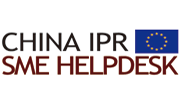7 December, 2017
In today’s blog post we are discussing design protection in China. We have chosen the case of a popular anti-pollution mask company Vogmask to explain the importance of also protecting the appearance of your products when doing business in China.
Innovative technology that is used in consumer products can be protected under invention or design patents in China, but this will not offer 100% protection against others illegally using the innovations in knock-off products, particularly while the patent is still pending. However, when it comes to products with functional technology, consumers are sensitive to quality. It is therefore beneficial to think about other ways to convince potential customers that your goods are the best in the market. Updating designs can serve to compliment technical innovation and keep a product ahead of those trying to emulate or imitate.
Vogmask is a popular anti-pollution mask product available in China, using an innovative microfiber filtration fabric. Christopher Dobbing founded Vogmask China in 2013. Originally an education consultant, he found that most students he worked with mentioned air pollution as a major challenge for China in the next 10 years, and that many of them had breathing illnesses or carried an inhaler with them. While searching for a good quality mask that he could recommend to students, Christopher got in touch with Vogmask USA. Vogmask UK and Vogmask China were founded shortly after.
“Vogmask China was founded in 2013 and our business has grown rapidly since”, say Christopher. “The market for air pollution products is growing, and until we entered the market no good pollution masks for children were available in China”, he continues. “Our masks are available at hospitals, international schools and online. Because the design of our masks is adaptable we can be creative in branding. Vogmask is a combination of fashion and function.”
Not long after its market entry, Vogmask found counterfeits and unlicensed products on the Chinese online retail platform Taobao. Christopher explains: “We monitor the market carefully and conduct a weekly online check. There are two types of items we need to deal with online: the first is cheap copies of our masks, the second is unlicensed imports of real products, meaning that the seller imported the goods illegally in order to avoid paying 17% import tax.” Christopher indicates that the volume of infringing products is growing every week.
Through the EU SME Centre, Christopher got in touch with the Helpdesk, who provided information on how infringing goods can be taken down from e-commerce sites in China. “This has been very useful and we have a clear idea on how to act now”, Christopher says. “We registered our trade mark in China immediately when we entered the market, but as registration processes in China can take quite some time, we are still awaiting our trade mark registration certificate. We need this certificate to prove to Taobao that we own the brand, and only then can we start with the takedown procedure of infringing products”.
Other than the continuous battle with online infringers, Christopher has an adequate IP strategy in place. He states: “The filters used in our masks are made of a very specialized, patented material. As it is too advanced to be copied cheaply, the quality of infringing products is not nearly as good as the original. As people are aware of the health issues regarding air pollution, they won’t buy a cheap copy instead of the real product.” According to Christopher, the design of the masks changes frequently, so copycats can’t keep up with the changes: “The design of our masks changes every year, people want to keep up with new trends and would therefore not buy a copy of last year’s design.”
Furthermore, Christopher says that although Vogmasks are manufactured in Korea, the company works with a distributor in Singapore so there is always the chance of information being leaked to China. “We monitor our distributors and had to cut one off because they seemed to be leaking information. Other than that we’re good, but it’s important to stay ahead.”
As a recommendation to other SMEs operating in China, Christopher advises: “Monitor the market, keep track of the business environment and deal with challenges as they arise. Start the process of registering your trade mark as soon as possible, because the registration process in China is very time consuming. Things that take one hour in the UK can take six months in China, so you really need to assign time for all registrations in order to manage your business well.”
Helika Jurgenson, China IPR SME-Helpdesk





